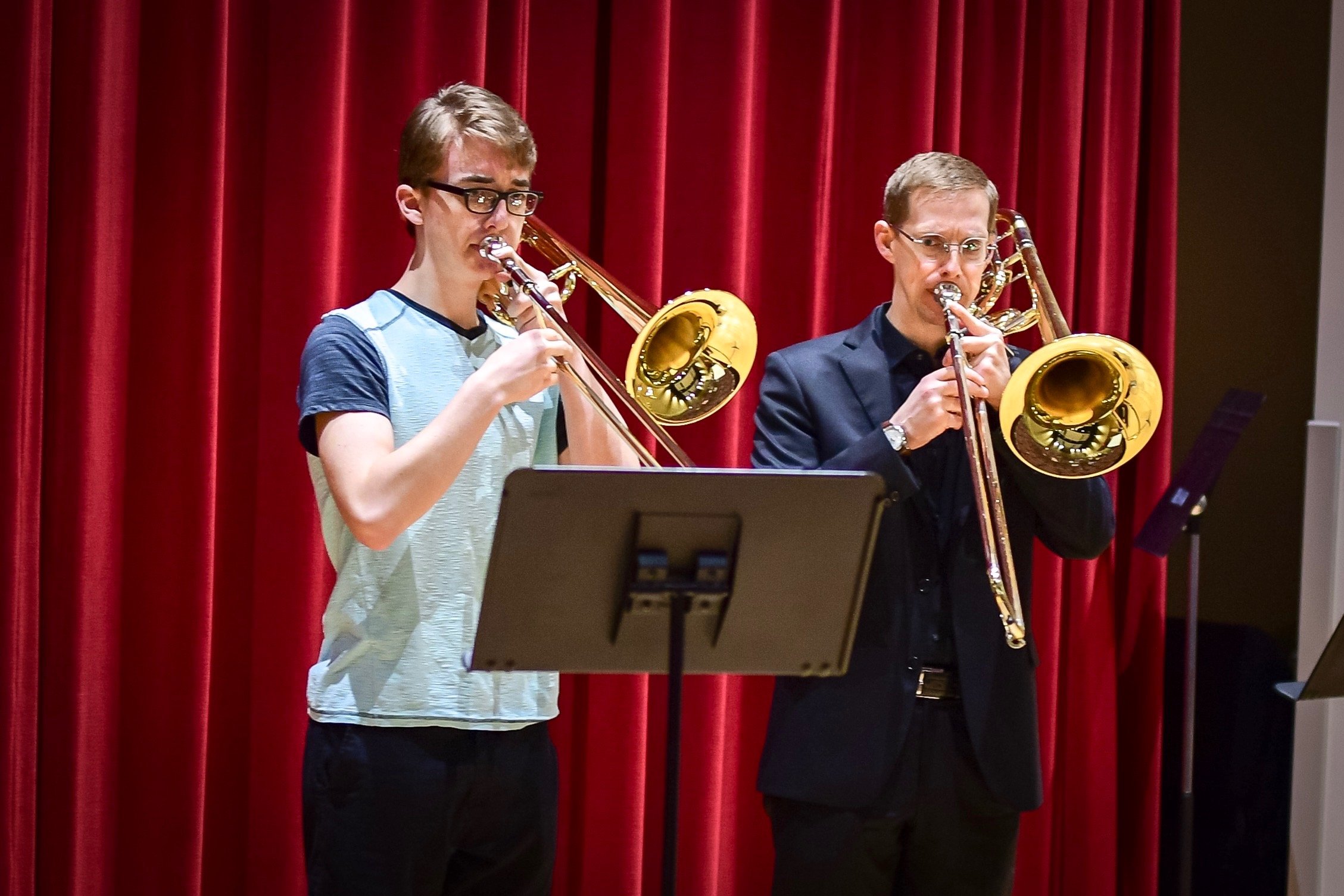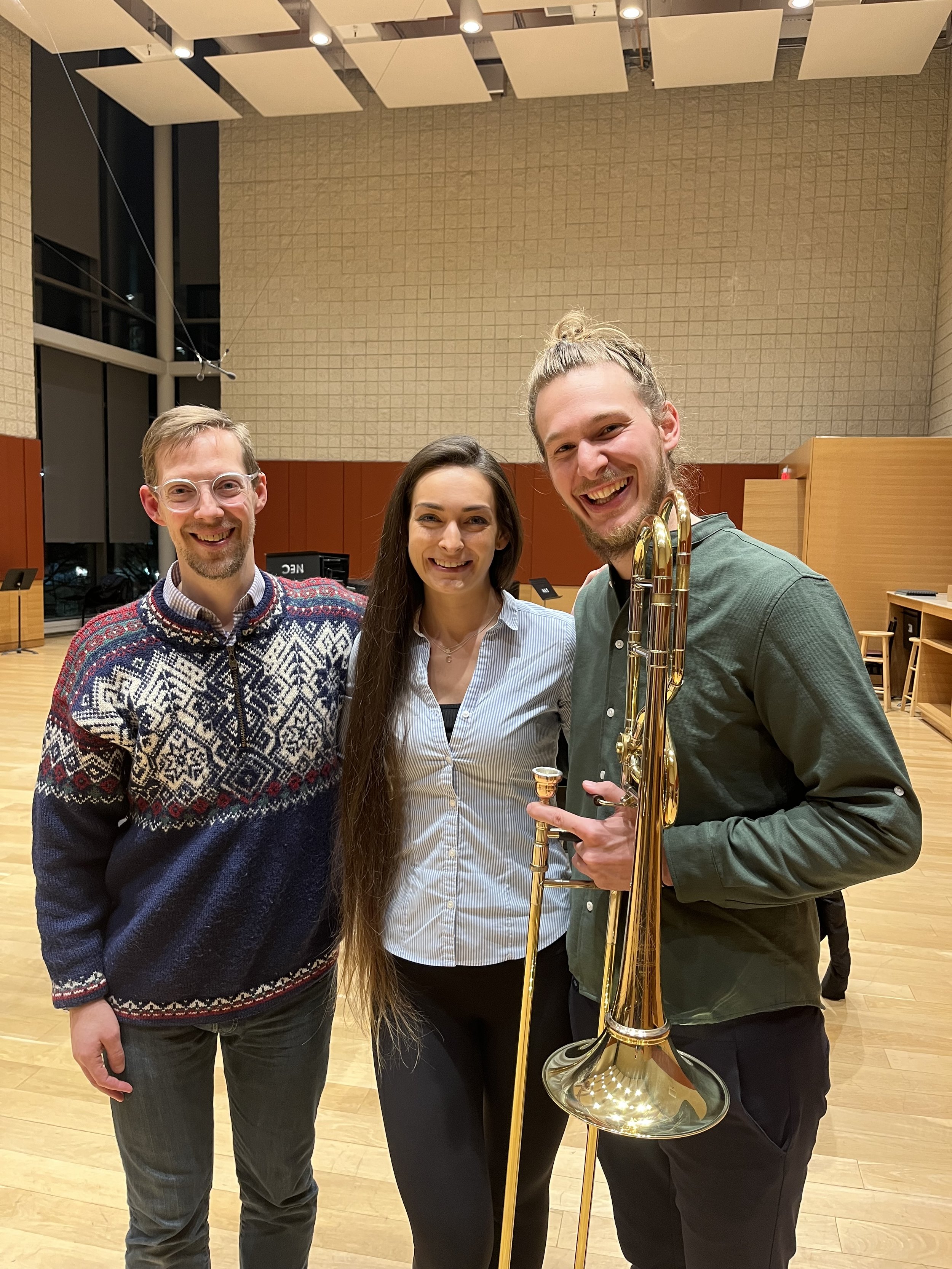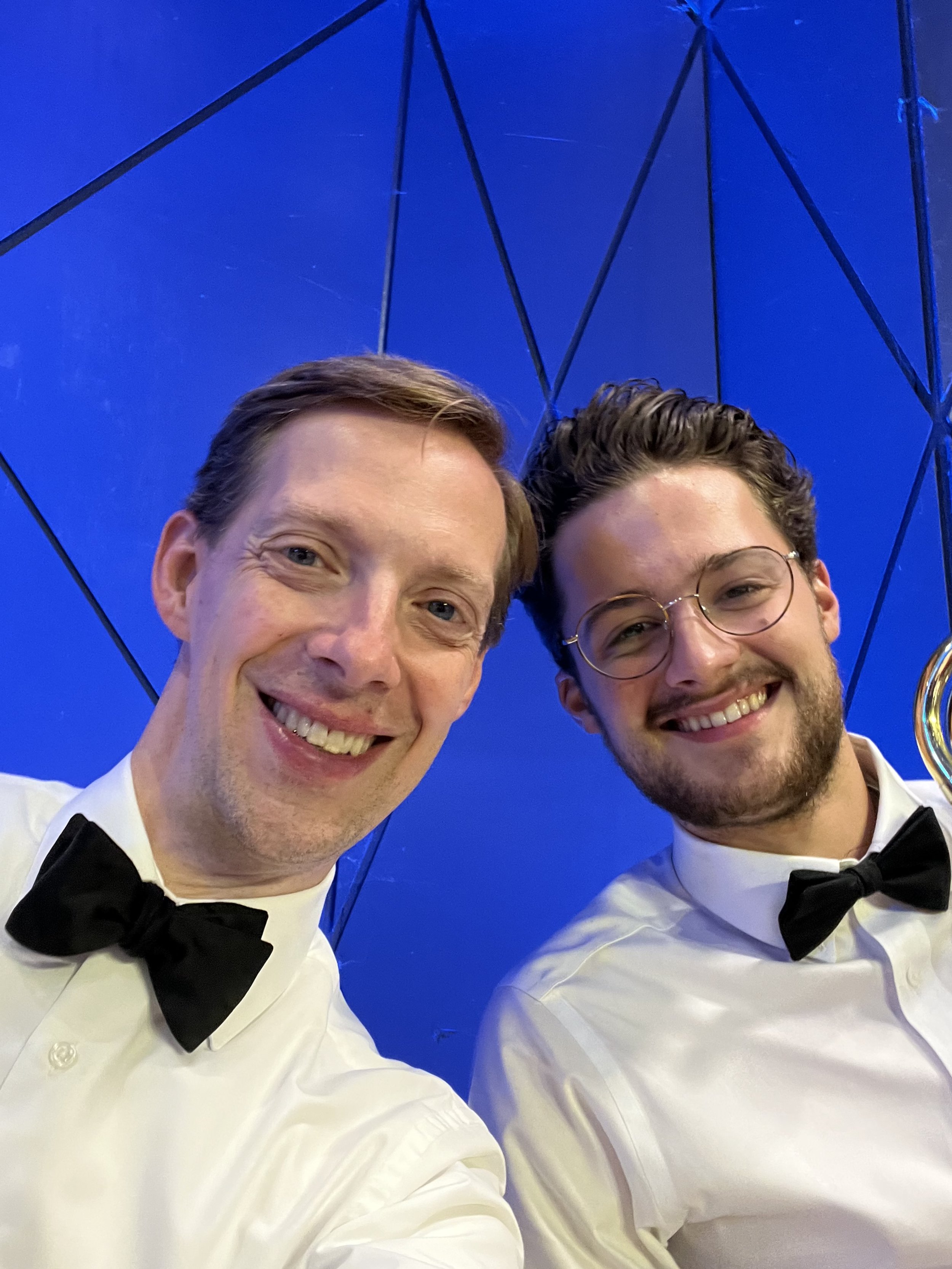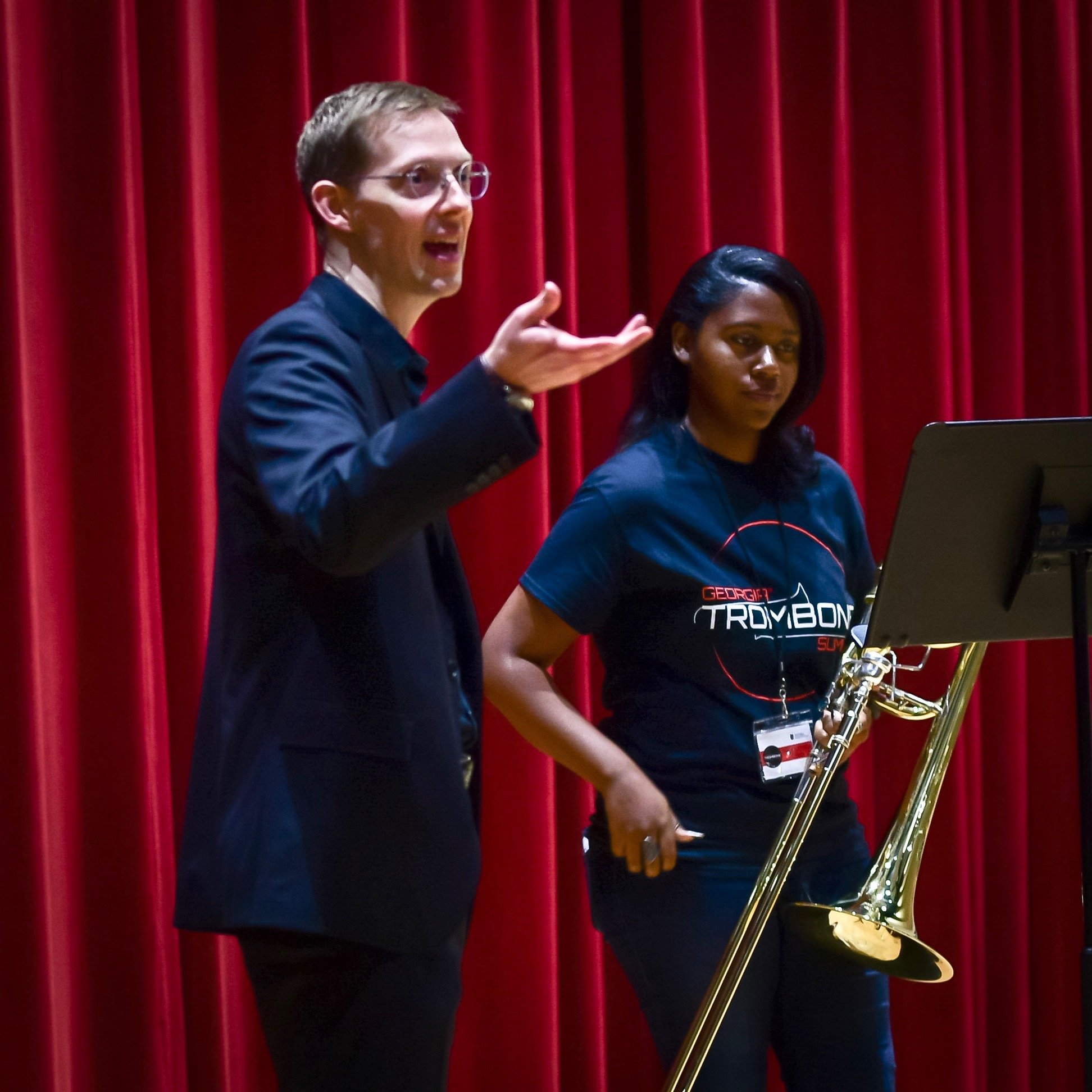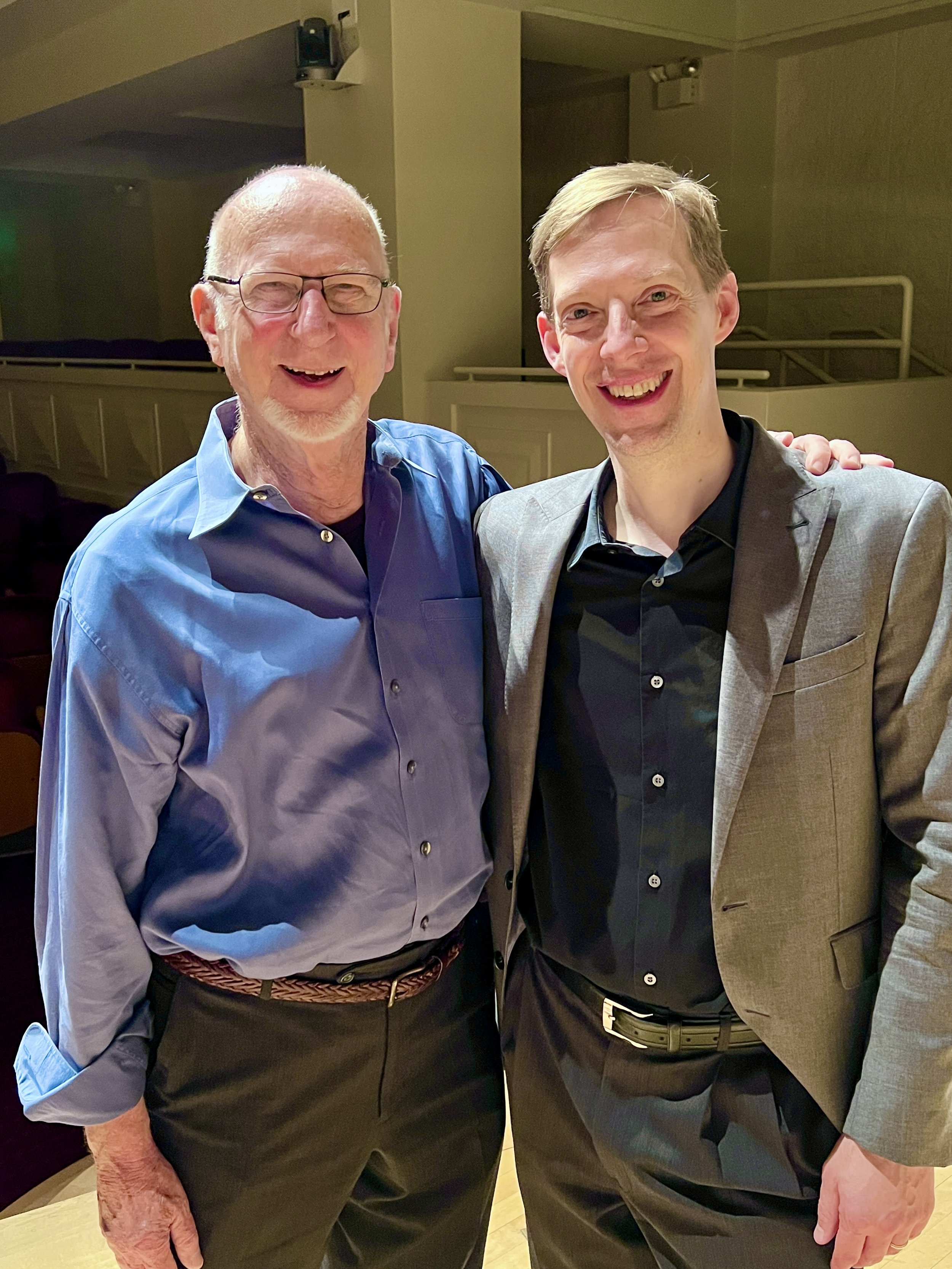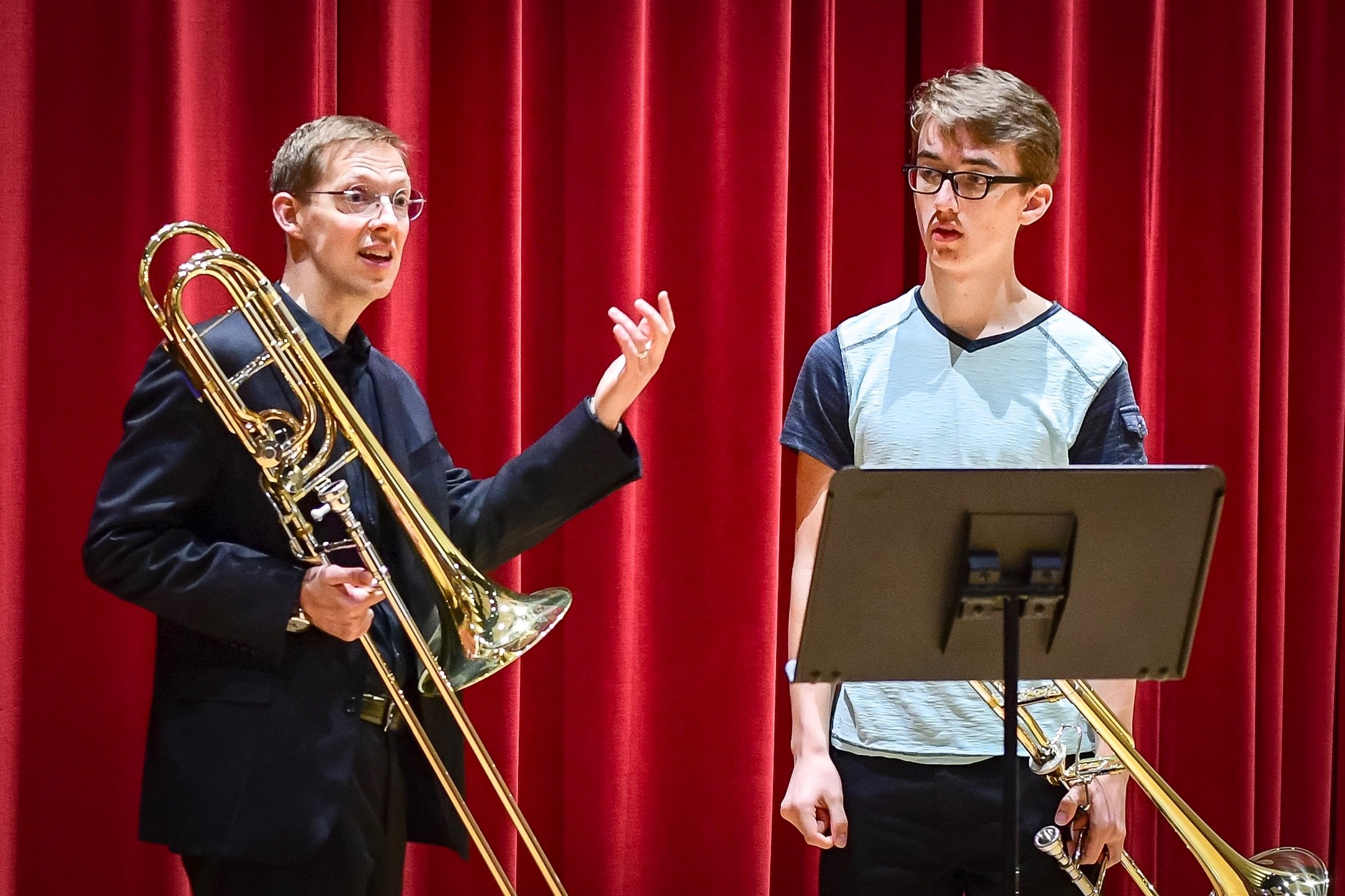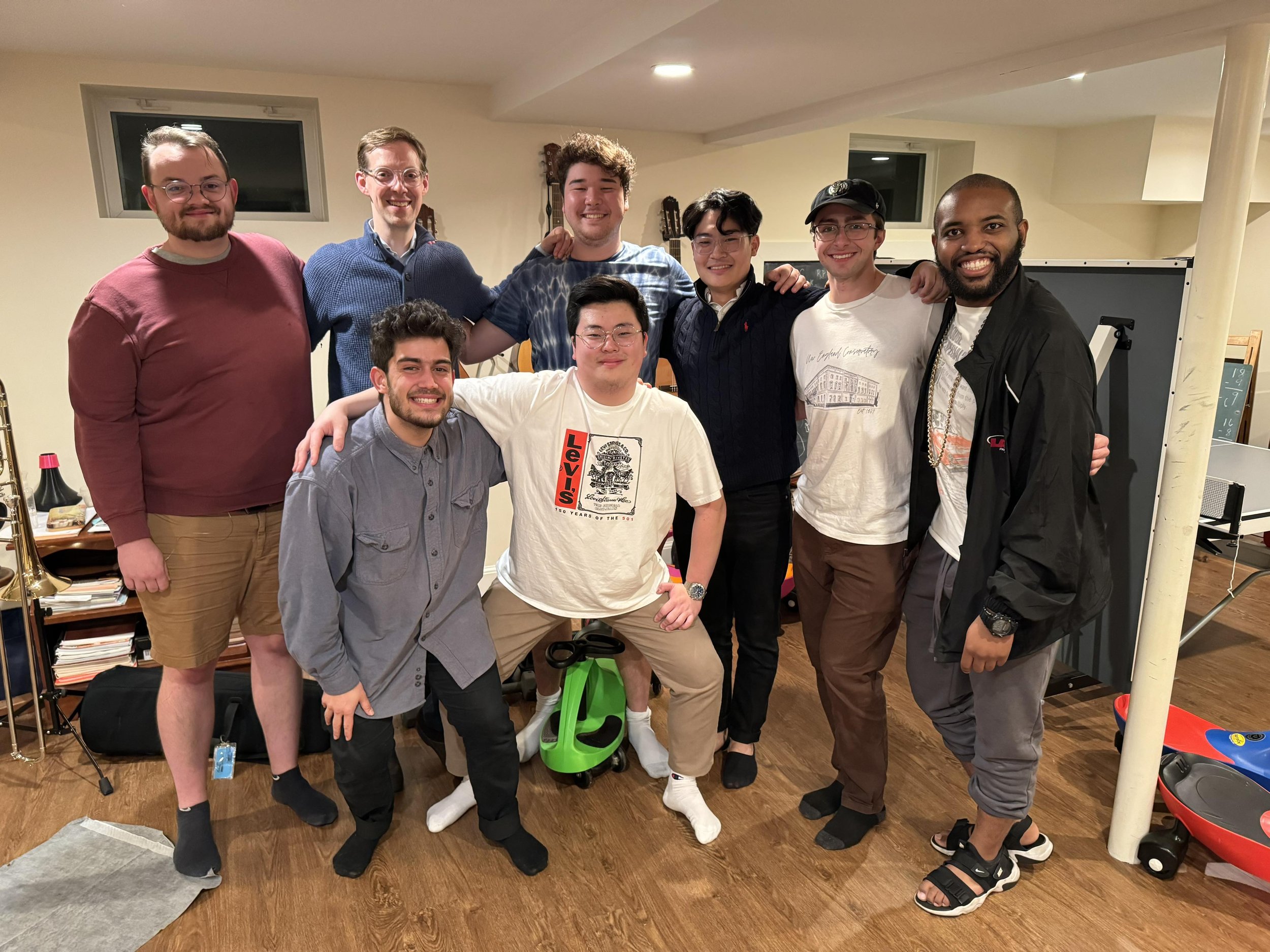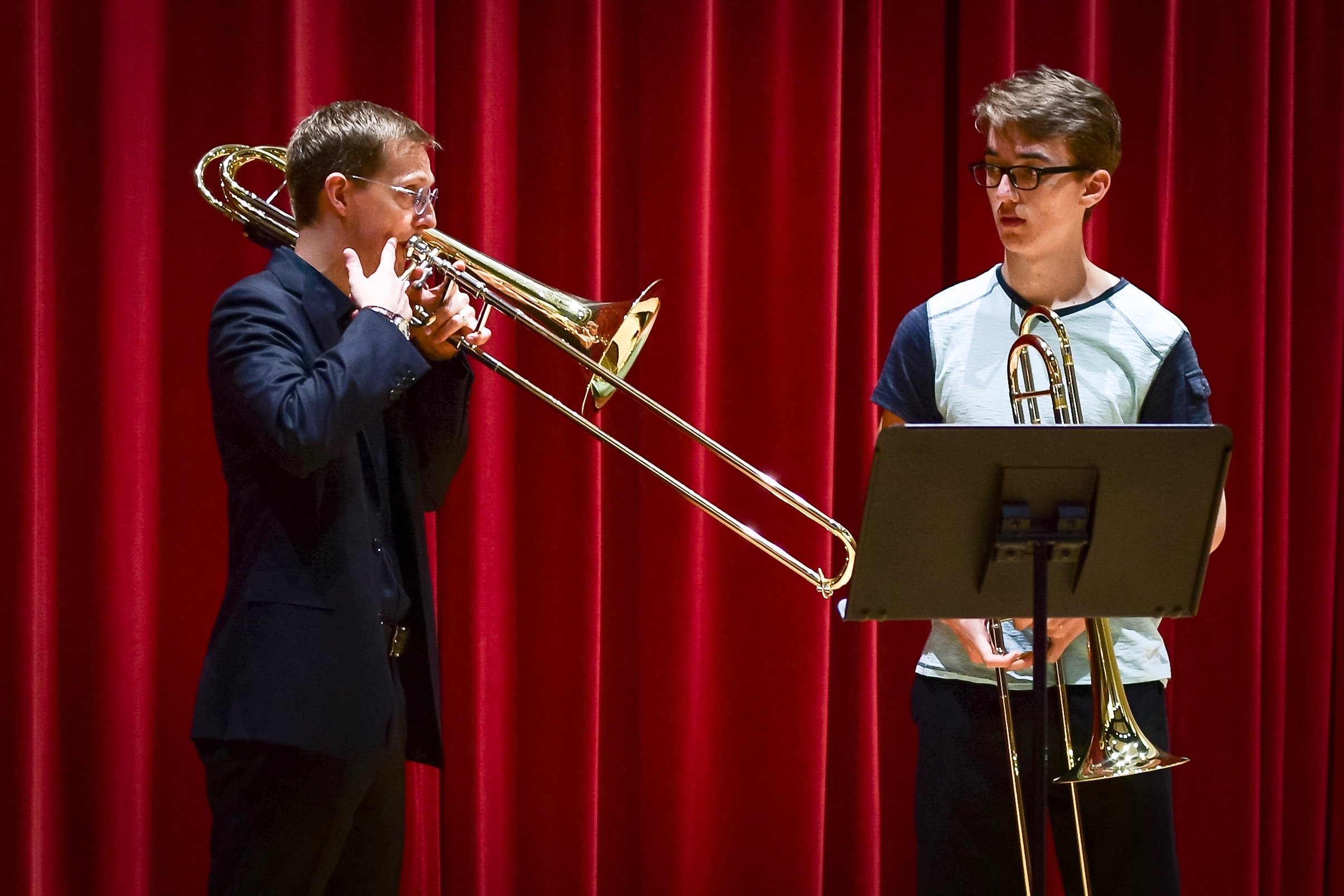
New England Conservatory
Professor James Markey:
Bass Trombone | BSO
Chamber Music | College
Suzuki Trombone and Suzuki Class Instructor | Preparatory School
New England Conservatory educates and trains musicians of all ages from around the world, drawing on our distinguished faculty’s deep reservoir of talent, as well as our creative community and educational partnerships. We are devoted to inculcating the highest standards of artistic excellence and nurturing individual artistic sensibility and creative growth. Understanding that music is one of the transcendent expressions of human civilization, NEC is committed to advancing music’s contribution to contemporary society.
We believe that the study of music builds human capacity, elevates the soul, and prepares our students for lives that enhance the public good.
We believe our students must have a supportive and collegial learning environment that maximizes the individual attention they receive from their teachers, and allows them to explore and develop their unique artistic personalities.
We believe in the critical importance of mutual support among faculty that encourages the highest standards of excellence and accommodates innovation, individual teaching philosophies, and a broad range of disciplines.We believe that we have a responsibility to reinforce and expand the position of music in society by educating the next generation of music leaders, incubating new work, and sharing our sublime art with the widest possible audience.
Frequently Asked Questions:
-
Most years we have 1-2 openings, typically one graduate and one undergraduate. However, with a small department of 4-8 bass trombones, circumstances can lead to adjustments of these numbers. The biggest factor in admissions decisions is the quality of our applicants in relation to their experience, regardless of the degree program. For Fall 2024, we are looking to enroll 2 total bass trombonists.
-
At NEC, there are typically 4-5 bass trombonists in the studio, although we have recently had as many as 6. The studio size helps ensure that each student gets an appropriate amount of ensemble experience, and also allows for flexibility in traveling to orchestral auditions or accepting employment opportunities as they happen.
-
Both NEC and I personally foster a culture of positivity, encouragement, and enthusiasm for learning. My primary goal is to guide each student to become the best version of themselves. The studio respects each individual and values differing perspectives, which allows us to all have a mult-dimentioanl, multi-layered environment in which to grow as musicians.
-
You can find NEC’s repertoire requirements on the official NEC auditions page linked below. With that said, you will best represent yourself by playing something within your skill set. A polished and well-performed rendition of a simpler work is more desirable than a less-polished performance of something more challenging.
-
NEC has two orchestras (Philharmonia and Symphony), as well as a Wind Ensemble/Symphonic Winds program. Performing opportunities are frequent, with part assignments distributed among the players. Students also participate in Chamber Music for at least one year (with many choosing to participate more than once), and in performance classes including Trombone Class, Low Brass Class, and Orchestral Repertoire for Brass.
-
90% of NEC students are supported by scholarships. The school offers both merit- and need-based aid.
-
NEC Admissions
https://admissions.necmusic.edu
Audition Requirements
https://admissions.necmusic.edu/undergraduate-programs/#audition
Lesson Scheduling [click here]
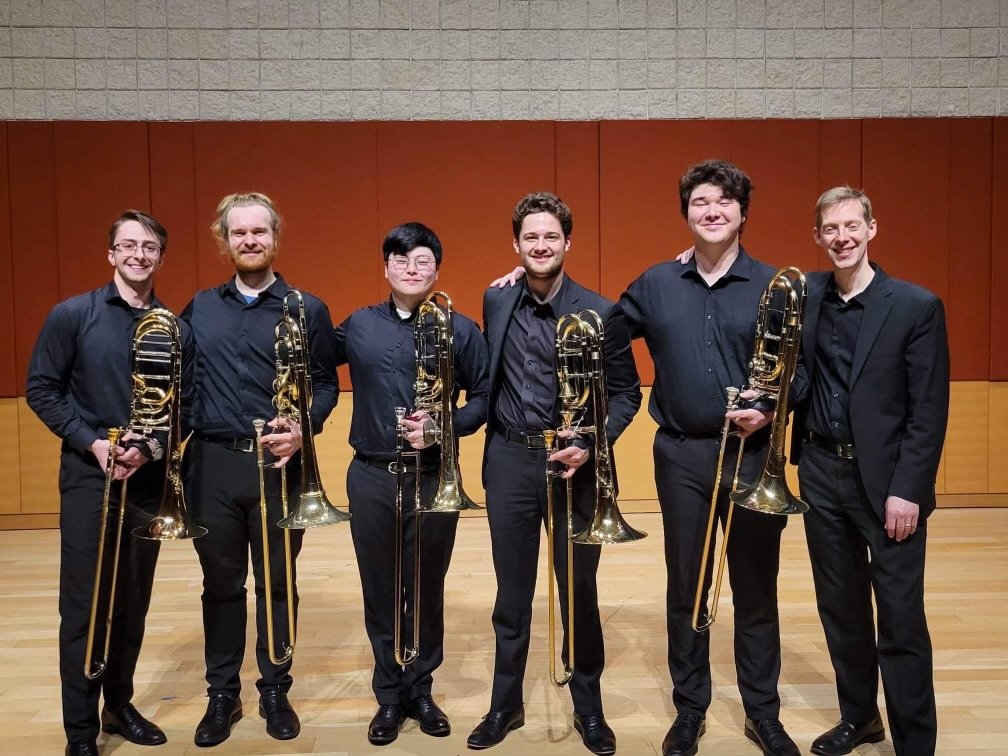
“Mr. Markey serves on the trombone faculty at the New England Conservatory in Boston, MA. In addition to his collegiate teaching, Mr. Markey is at the forefront of the Suzuki Brass movement, and is one of eight registered Suzuki trombone instructors in the world. A passionate believer in early childhood education in brass playing, he is founder of the Suzuki Brass program at New England Conservatory’s Preparatory Division. He has served on the faculties of the Juilliard School, Mannes College: the New School for Music, New York University, Purchase College (SUNY), Longy School of Music, Montclair State University, Sarah Lawrence College, and the Juilliard School’s Pre-College Division.”
Teaching Philosophy
Every person possesses their own strengths, areas for growth, and personalities. My goal at NEC is to function like a skillful and caring gardener: to provide each student what they need to grow into the best version of themselves possible. In the process, I strive to help them develop the tools they need to continue their own growth, both outside of lessons and after their formal institutional education is complete.
Part of this is understanding how technique (development) and musicianship (refinement) inform and develop each other. When we acknowledge that the reason we work on technique is to play music effectively, and that in order to play music effectively we need to have solid technique, we strike an appropriate balance in our work.
This is why each of the students at NEC vigorously works on both technical and musical development. It’s when a person has a strong grasp of both of these concepts that they are truly free to become themselves at their very best. And this is all any person can ask of themselves.
